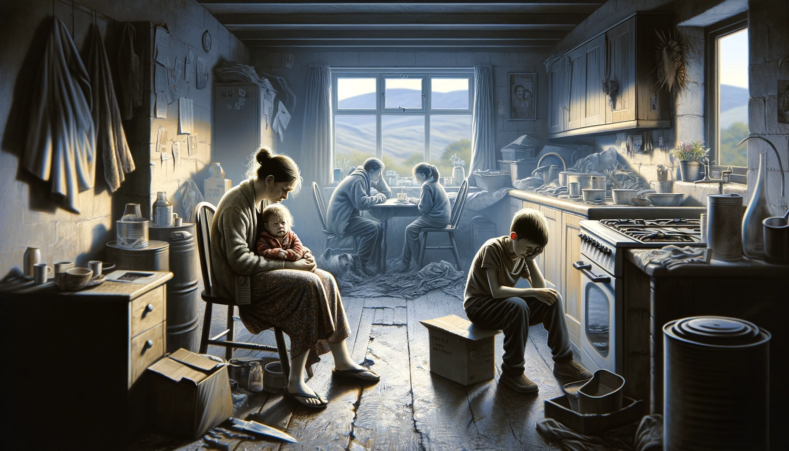Family breakdown is one of the chief reasons why many people in Britain remain in poverty and cannot climb up the social ladder, according to a major new report called “Two nations”, published by the Centre for Social Justice. The essential argument is that social disadvantage contributes to family breakdown, and in turn makes it even harder to escape from poverty. It is a vicious cycle.
The report lists the causes of social deprivation: “The most disadvantaged across our nation are not always those who have the least money but those whose lives are marked by wasted potential driven by family breakdown, educational failure, worklessness, addiction, and debt”.
The same certainly applies here in Ireland and the Dublin riot was probably evidence of that.
Family breakdown causes not only human misery, the report points out, but it costs an estimated £51 billion to public services every year.
While divorce rates have remained relatively steady in Britain since 1980, the increase in family breakdown is now primarily attributed to the dissolution of cohabiting partnerships, rather than divorce itself because many couples never marry at all anymore.
The poorest families are hit hardest by a family breakdown: a teenager growing up in the poorest 20pc of households is two-thirds more likely to experience family breakdown than a teenager in the top 20pc.
Marriage brings not only financial stability to the family but also better mental health and cognitive development for children.
Families that reported problems with family functioning exhibited higher levels of mental disorders compared to the general population.
The analysis from the CSJ found that “those who experience family breakdown are 2.3 times more likely to experience homelessness, 1.7 times more likely to experience mental health issues and 1.6 times more likely to experience debt.”
In the UK, 23pc of families are headed by a single parent, compared with an EU average of 13pc. The figure in Ireland is 17pc.
Over 40pc of births in this country now take place outside marriage, although about half of those are to cohabiting parents. Over time, the percentage of children in Ireland being raised by a lone parent is surely set to increase.
In Britain for the first time more children are born to unmarried mothers than to married mothers. The report found there are significant differences among ethnic groups. Fifty-one percent of Black, or Caribbean families are headed by a lone parent, compared with an average of 16pc for those from an Asian ethnicity, and 22pc for those from a White ethnicity.
In most of the cases (84pc), lone parent families are led by the mother. In cases of family dissolution, it is almost invariably the father who departs from the household.
Absent fathers are a major societal problem and the report estimated that 2.6 million children in Britain do not have a father who lives with them at home.
The “Two Nations” report underscores the imperative to promptly address the ramifications of family breakdown. Without the foundation of a stable family life, built on marriage, the most disadvantaged will persist in experiencing poverty and enduring detrimental effects on their mental health.
An Iona Institute report published in 2019 showed that in Ireland, as elsewhere, people from the most disadvantaged groups are by far and away the most likely to have experienced family breakdown which further perpetuates their disadvantages.
What one charity worker told the CSJ almost certainly applies to Ireland as well: “One of the things we get frustrated with when we’re working with Government and MPs is that they seem to forget how important family is to all of us. They never really take it into account when they’re making policy.”
















